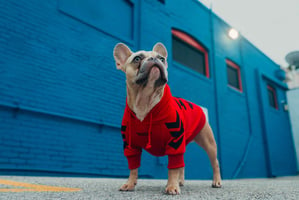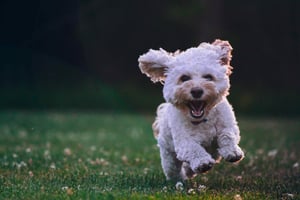Training your Cockapoo puppy can be a fun and rewarding experience. With the right attitude and a...
2-3 Month Puppy Training: Everything You Need To Know
Puppy training is an important part of raising a healthy and well-behaved pup. Training your pup in the first 2-3 months is key to setting up a positive relationship between you and your pup. This article will provide an overview of the main puppy training tips and tricks you should know when it comes to 2-3 month puppy training.
Socialising Your Puppy
Socialising your puppy is one of the most important aspects of puppy training. Introducing your pup to people, places and animals from an early age will help your pup to grow up confident and happy. Make sure you take your puppy to places like the park, pet stores and even cafes. This will give your pup the opportunity to interact with different people, animals and environments. It's also important to get your pup used to grooming and handling. This can be done by brushing and playing with your pup regularly.
It's also important to make sure that you are introducing your puppy to new experiences in a positive way. This means making sure that your pup is comfortable and not overwhelmed. If your pup is getting too scared or overwhelmed, take a step back and give them some space.
Obedience Training
Obedience training is an important part of puppy training. Teaching your pup basic commands like sit, stay, come and leave it will help you to establish a strong bond with your pup and will also help you to keep your pup safe and well-behaved. Start by teaching your pup the basic commands like sit and stay. Once your pup is comfortable with these commands, you can start introducing more commands like come and leave it.
When it comes to teaching your pup these commands, it's important to be consistent and patient. Make sure that you are rewarding your pup when they do something right and giving them plenty of praise. It's also important to make sure that you are not punishing your pup for making mistakes. Instead, focus on rewarding the behaviour you want to see.
Crate Training
Crate training is a great way to help your pup feel safe and secure. Crate training can also be a useful tool for house training. The basic idea is to introduce your pup to the crate and make it a comfortable place for them. This can be done by placing treats inside the crate and rewarding your pup for going in the crate.
It's important to make sure that you are not using the crate as a punishment. The crate should be a safe and comfortable place for your pup. It's also important to make sure that you are not leaving your pup in the crate for too long. Puppies should never be left in the crate for more than a few hours.
Potty Training
Potty training is an important part of puppy training. It's important to start potty training as soon as possible. Start by establishing a potty routine. Take your pup to the same spot every time they need to go potty and reward them for going in the right spot. It's also important to make sure that you are not punishing your pup for having accidents. Instead, focus on rewarding them when they go in the right spot.
It's also important to make sure that you are not leaving your pup alone for too long. Puppies need to go potty frequently and if they are left alone for too long, they may have accidents. Make sure that you are supervising your pup and taking them out to go potty frequently.
Conclusion
Puppy training in the first 2-3 months is key to setting up a positive relationship between you and your pup. It's important to start socialising your pup from an early age, teaching them basic commands and crate training. Potty training is also an important part of puppy training and should be started as soon as possible. With patience, consistency and plenty of rewards, your pup will be well-behaved and happy in no time.



